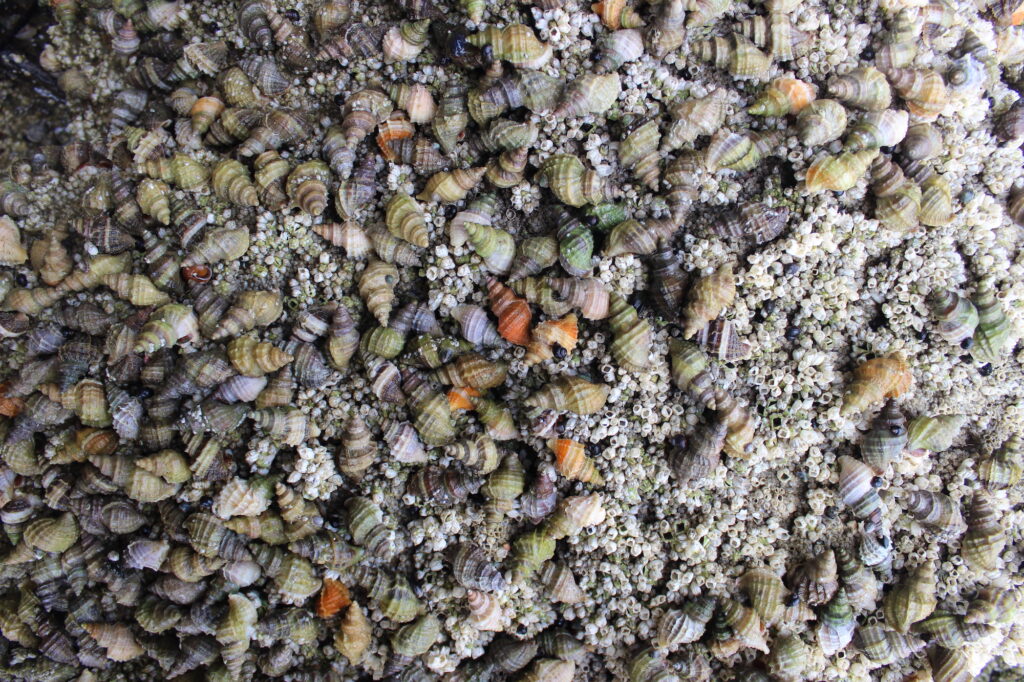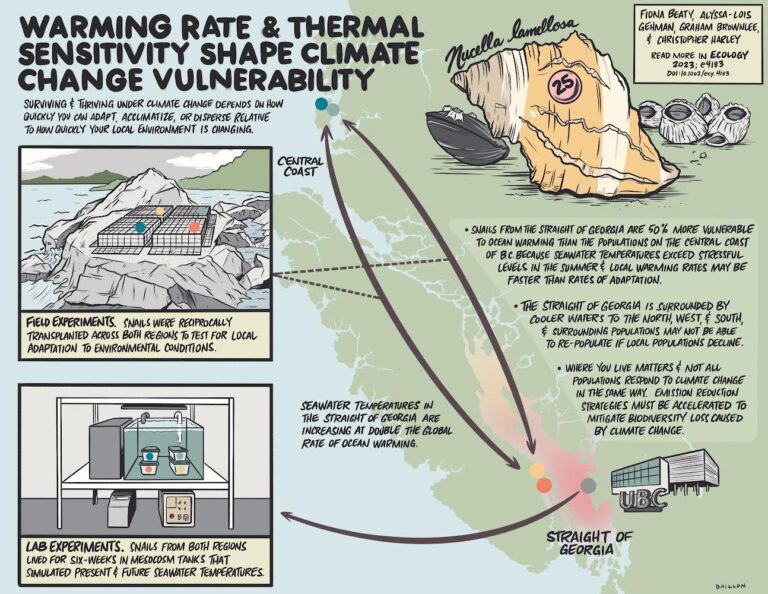
Nucella lamellosa or frilled dogwinkles. Photo credit: Dr. Christopher Harley
Strait of Georgia hotspot
To figure out how location affects vulnerability to a changing climate, UBC zoology researchers Drs. Fiona Beaty and Chris Harley collected marine snails from the Strait of Georgia, a potential hot spot of climate risk, and the Central Coast, where waters are cooler and warming more slowly.
They monitored snails in the lab, in water heated to current and future projected sea temperatures, and in the field along shorelines.

Credit: Rush Dhillon
Movement and snails don’t go together
They found Strait of Georgia snails were 50 per cent more vulnerable to ocean warming, experiencing current seawater temperatures much closer to the upper limits of what they can tolerate than snails on the Central Coast. Indeed, up to a third more snails perished when kept on the Strait shoreline over summer than those kept on the Central Coast.
“These creatures are already experiencing temperatures beyond their comfort zone in the Strait, and they’re unlikely to keep up with warming oceans because they can’t move very far,” says Dr. Beaty, who completed the research during her PhD at UBC.
She says the work highlights that climate risk can be tied to location, even for people. If a species can’t move from an environment that is changing faster than the species can adapt, it could be in trouble.
Oysters, anchovies and whales, oh my!
The Strait could represent a dead zone in the species’ future. Meanwhile, species that will survive in a warmer future are likely those more tolerant of heat with shorter life spans, such as oysters and northern anchovy, as well as those that feed on them, such as whales.
Tags: British Columbia, Christopher Harley, climate change, faculty, Fiona Beaty, oysters, Research, sea snails, Strait of Georgia, whales